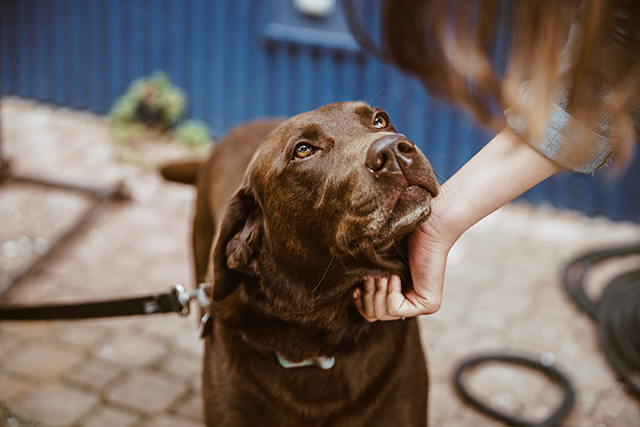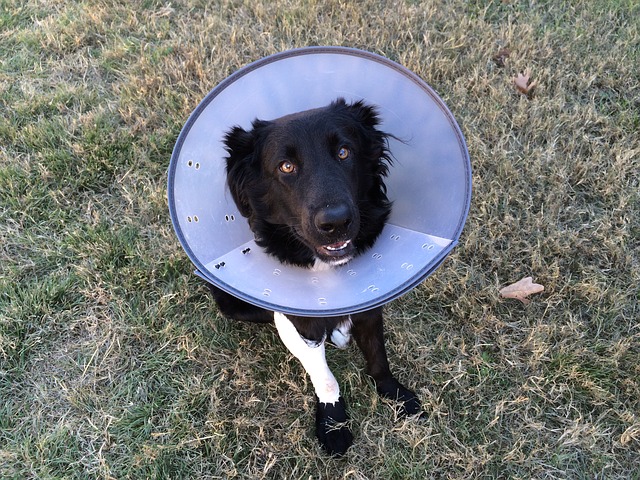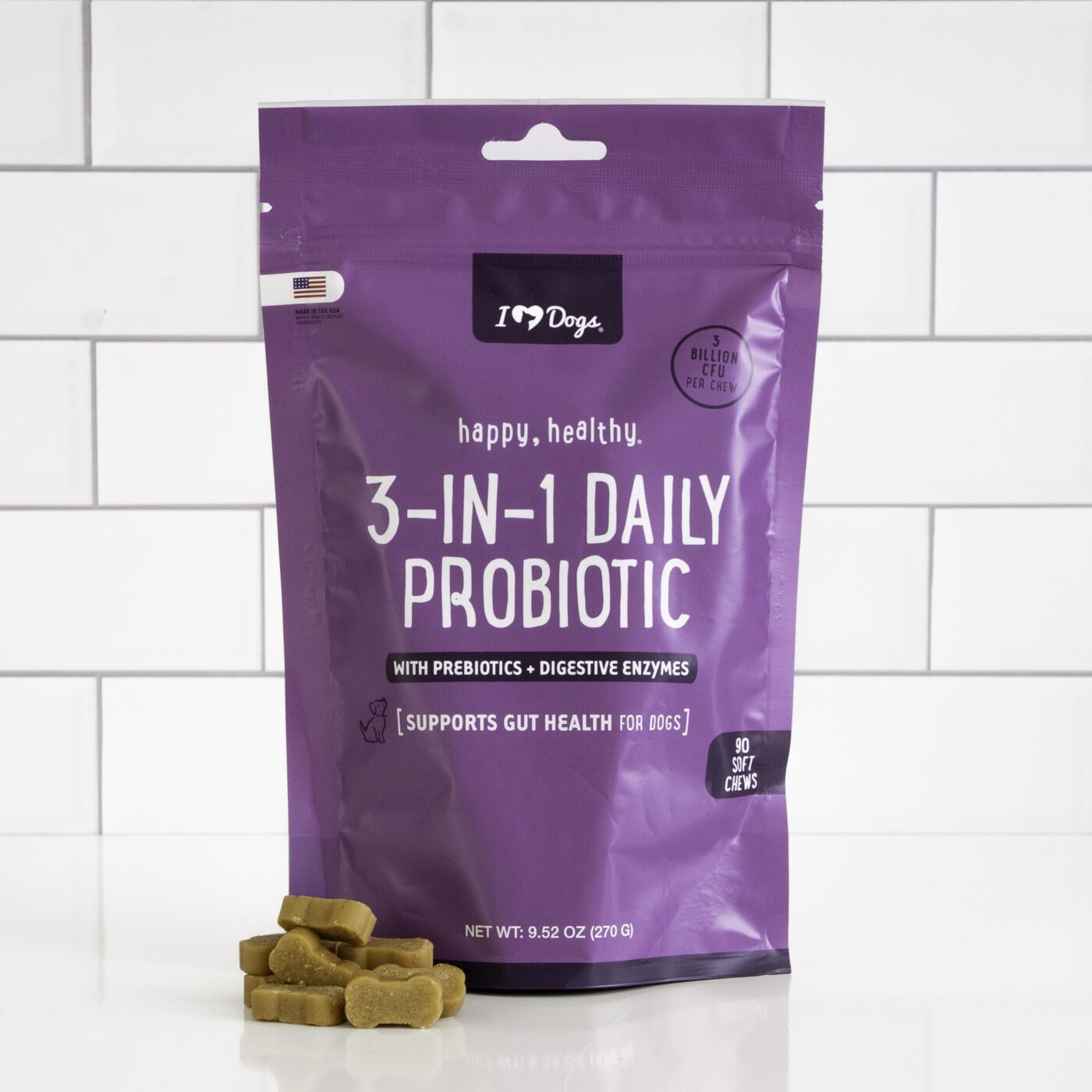Up to 80% of a dog’s immune system is located in the gastrointestinal tract, so maintaining digestive health means far more than just preventing upset bellies and loose stools.
Related: iHeartDogs Rates the Best Probiotics for Dogs
Probiotics replenish the levels of healthy bacterial flora in the GI tract and prevent the “bad” bacteria from taking over. Dogs with unbalanced flora levels experience digestive problems and are more susceptible to illness. In general, probiotics are a healthy addition to your dog’s diet, no matter the issue – but in certain cases it may be vital to your dog’s health to include probiotics in Fido’s daily diet.

In the following 10 circumstances, probiotics can be especially beneficial to your dog. All of these stressors upset the balance of good to bad intestinal bacteria, potentially leading to poor nutrient absorption, chronic diarrhea, allergies, and/or autoimmune disorders.
1. When adopting a rescue or shelter dog
Unfortunately, we rarely know much about the history of our rescue dogs. What age were they taken from their mother? What was their diet like before they were rescued? Do they have any existing medical problems? Giving probiotics is a good way to boost immunity and counteract any GI symptoms caused by the stress of a new home.

2. Dogs with Demodectic mange
All dogs are exposed to the mites that cause demodex. It is only those with weak or immature immune systems that develop the skin disease. Boosting their immunity with probiotics can help give these pups the strength to recover from the itchy rashes and skin infections, and also tolerate the chemicals used to kill off the mites.

3. Immune compromised dogs
Orphaned and non-thriving puppies and dogs with autoimmune disorders, nutritional deficiencies, cancer, diabetes, renal disease, lupus, or those being treated with immunity-suppressing drugs like steroids or chemotherapy need as much natural immune support as they can get. Probiotics not only boost immunity, they also help the body make B vitamins that provide energy, act as antioxidants, and help build new cells.

4. After any kind of gastrointestinal illness or digestive upset
Nothing throws off the healthy balance of the intestinal flora more than a bout of digestive illness like pancreatitis, inflammatory bowel disease, gastritis, or colitis. Most vets send every single patient that present with diarrhea home on probiotics.
RELATED: Which dog probiotic product does iHeartDogs recommend?

5. Dogs with chronic diarrhea or vomiting
Some dogs suffer from ideopathic GI symptoms – meaning the source of the problem can’t be pinpointed. It could be due to stress, food allergies, or eating things they shouldn’t. No matter the cause, chronic vomiting or diarrhea will only get worse if the bacterial balance isn’t re-stabilized after a flare-up.

6. Before, during, and after a stressful event
Traveling, boarding, moving to a new home, adding a new family member, etc. All these events can be very stressful for your pooch, and stress can cause diarrhea, vomiting, and GI upset. Many owners of nervous dogs start their pup on probiotics before an upcoming stressful event to minimize symptoms.

7. During a diet change
Changing from one dog food to another can lead to diarrhea and/or vomiting if done too quickly, or if your dog is especially sensitive. Probiotics can help alleviate the strain on the digestive tract and prevent issues during the changeover.
RELATED: 6 Things To Consider Before Buying a Canine Probiotic

8. Dogs who have ingested chemicals, contaminated water, feces, etc.
Dogs who eat and drink from questionable sources are clearly at a much higher risk of developing GI upset and having excess “bad” bacteria in the gut. Probiotics are a must for all poop eaters and garbage pickers!

9. After being treated with antibiotics and/or steroids
As effective as these drugs are, they have the inconvenient side effect of decimating good bacteria along with the bad. Probiotics can be given at the same time as these drugs or right after, restoring balance and helping to prevent GI upset.

10. While recovering from surgery or injury
Physical stressors like surgery and injuries tend to temporarily suppress the immune system, meaning your dog’s body must work extra hard to recover. Probiotics not only support immunity and healing, they help animals in recovery tolerate the medications they need to get well.
Which Probiotic Does iHeartDogs Recommend?
Providing a supplement that contains both probiotics and prebiotics is the easiest way to ensure that your pup is getting the help he or she needs to encourage an optimally functioning GI tract. The iHeartDogs 3-in-1 dog probiotic supplement, not only contains pet-specific probiotics and prebiotics, but also boasts digestive enzymes and digestive herbs, all in a tasty, easy to administer chew.
Please visit here if you’d like to learn more about the dog probiotic recommended by iHeartDogs.
H/T to Mercola Healthy Pets
Featured Image via Flickr/TheGoingGreenBoutique
These statements have not been evaluated by the Food and Drug Administration. This product is not intended to diagnose, treat, cure, or prevent any disease. The information on this website is not intended to replace a one-on-one relationship with a qualified healthcare professional.

 Toledo, United States.
Toledo, United States.
